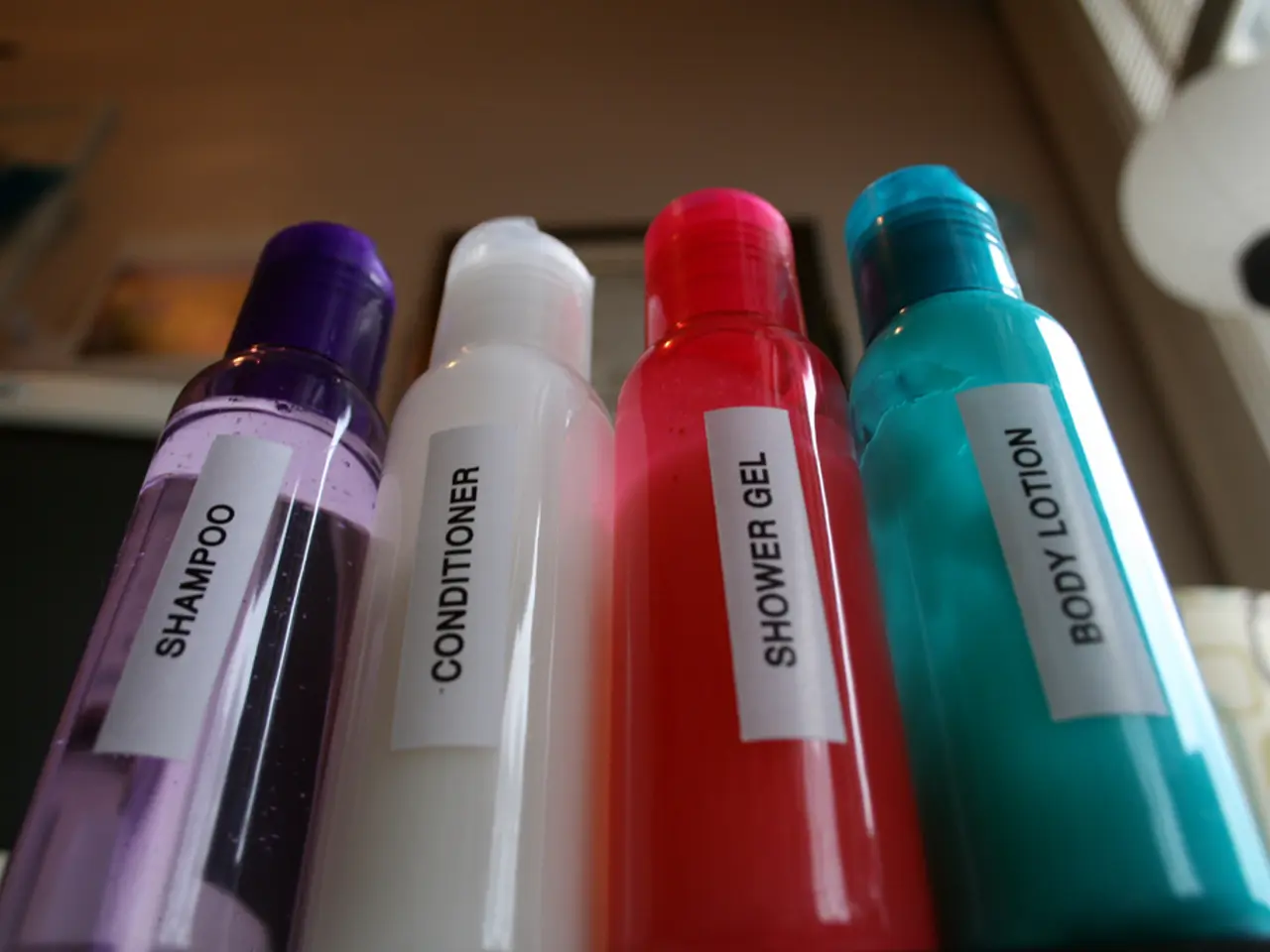Are keratin products suitable for vegans? Recipes for vegan-friendly consumers
The beauty and personal care industry is witnessing a significant transformation, with an increasing emphasis on cruelty-free, vegan products that promote hair wellness. This trend is particularly noticeable in the hair care segment, as brands seek to differentiate themselves with natural, plant-based claims.
One of the key areas of focus is the development of vegan keratin alternatives. As the demand for cruelty-free products grows, particularly among young people, the cosmetics industry is turning to plant-based sources to generate vegan keratin. Rice and wheat are being used to create plant-based proteins that can benefit hair health, mirroring the strengthening and restoring effects of animal-derived keratin.
The COVID-19 pandemic has further highlighted the importance of cruelty-free products, with concerns about animal welfare and the environment becoming more prevalent. In 2020, 67% of Gen Z consumers stated they would stop using brands that employed unethical practices, and 55% only use cruelty-free products.
The demand for vegan keratin products has surged, reflecting the rise in cruelty-free beauty trends. In 2020, 45% of American consumers considered strengthening hair as an important purchase driver when buying conditioner. This trend is evident in the growing number of products with 'vegan keratin' claims, aligning with the rising popularity of vegan claims in the beauty industry.
Vegan keratin alternatives rely on plant proteins, patented botanical complexes, and nourishing oils to replicate the function of animal-derived keratin without compromising vegan standards. Plant-based formulas, such as hydrolyzed proteins extracted from grains like rice or wheat, can mimic the properties of keratin.
Other popular plant-derived ingredients that offer keratin-like strengthening or conditioning properties include argan oil, panthenol (Vitamin B3), and hydrolyzed plant proteins. These ingredients provide benefits such as hair strengthening, moisture retention, frizz control, and protection against damage and humidity, making them ideal replacements for animal-derived keratin in vegan haircare formulations.
For instance, specific patented technologies like KeraFUSION™, a vegan keratin alternative made from an upcycled by-product of milk thistle, repair damaged hair bonds and reduce frizz.
The rhodiola complex and other plant-based active ingredients are also being used in hair care products to combat hair follicle miniaturization and hair loss.
Third-party vegan cosmetic certifications have become essential for successful formulas in the vegan market. Between 2013 and 2018, there was a 175% growth in vegan cosmetic launches, demonstrating the growing consumer interest in cruelty-free products.
In conclusion, the beauty industry is moving towards vegan keratin alternatives to meet the growing demand for cruelty-free products. These alternatives, derived from plant proteins, patented botanical complexes, and nourishing oils, provide benefits similar to animal-derived keratin while adhering to vegan standards. The trend towards vegan beauty products is expected to continue, driven by consumer preferences for ethical, environmentally friendly, and cruelty-free products.
- The beauty industry is prioritizing the development of 'vegan keratin' alternatives, using plant-based sources like rice and wheat to generate proteins beneficial for hair health.
- The increasing demand for cruelty-free products, especially among younger consumers, is driving the cosmetics industry to focus on 'clean beauty' and 'health-and-wellness' practices.
- In the realm of 'fitness-and-exercise', companies are promoting their products as part of a holistic 'lifestyle' approach, which includes 'skin-care' and 'nutrition'.
- The rising popularity of ' vegan keratin' claims aligns with the broader trend of vegan and cruelty-free products in the 'fashion-and-beauty' sector, reflecting a shift towards 'personal-growth' and 'mindfulness'.
- 'Education-and-self-development' platforms are offering courses on plant-based ingredients, helping individuals understand their benefits for hair care and contributing to the 'science' behind vegan keratin alternatives.
- With a growing emphasis on 'ethical' and 'environmental' concerns, third-party certifications like vegan cosmetic certifications have become crucial for the success of new products and the continued growth of the vegan beauty market.




